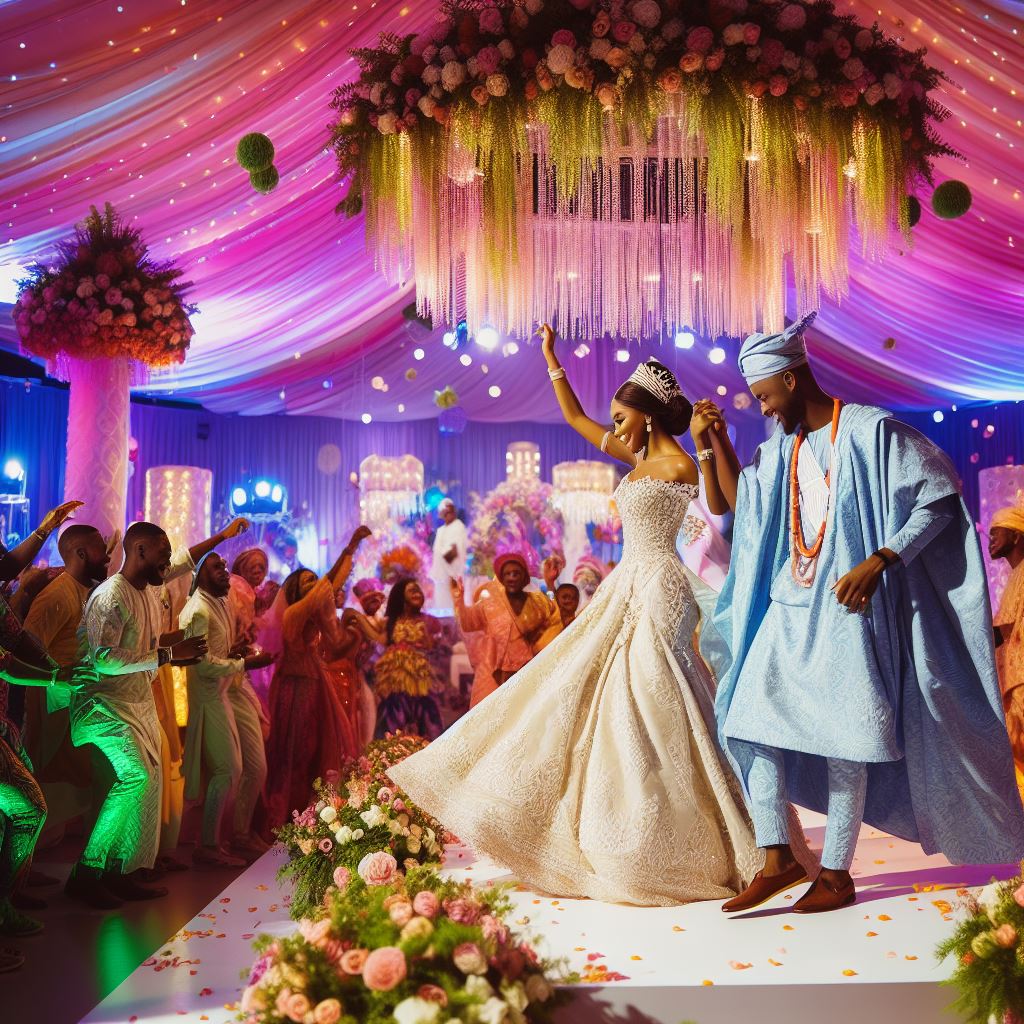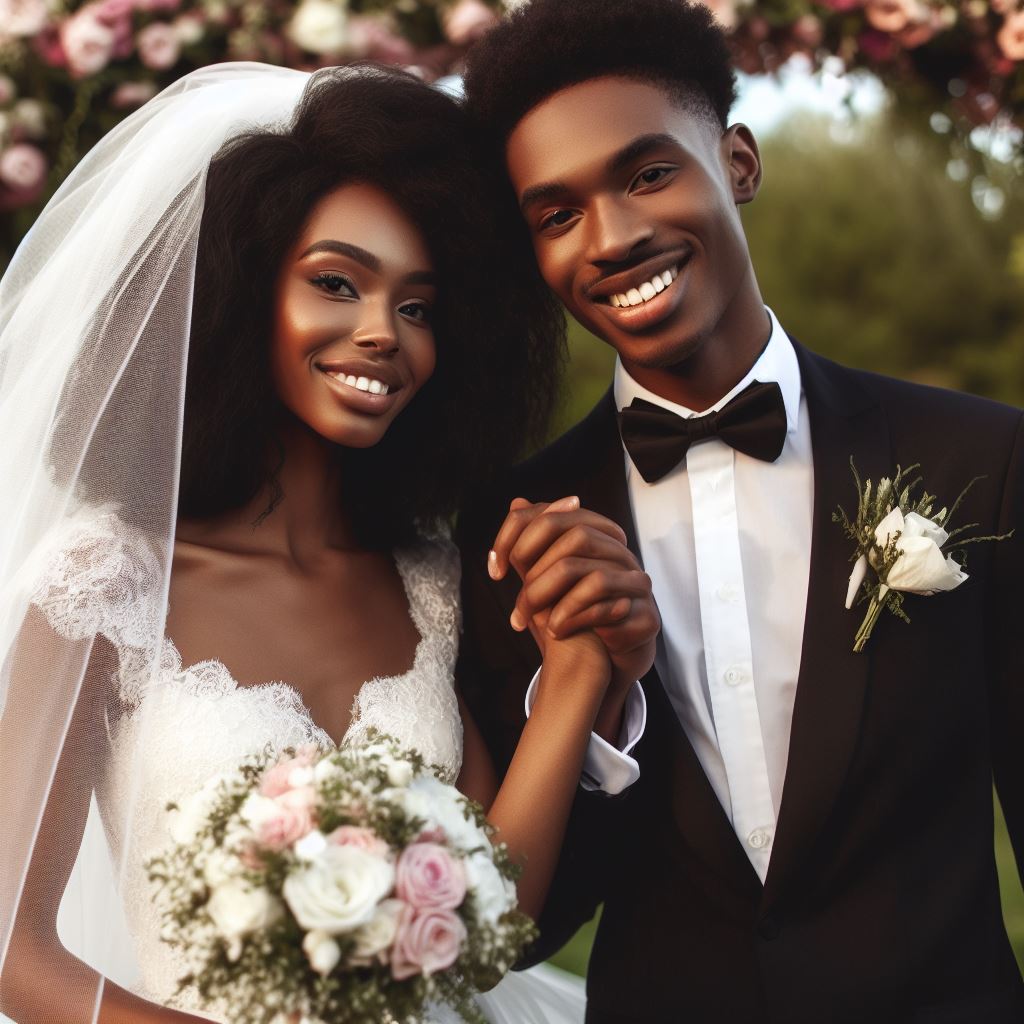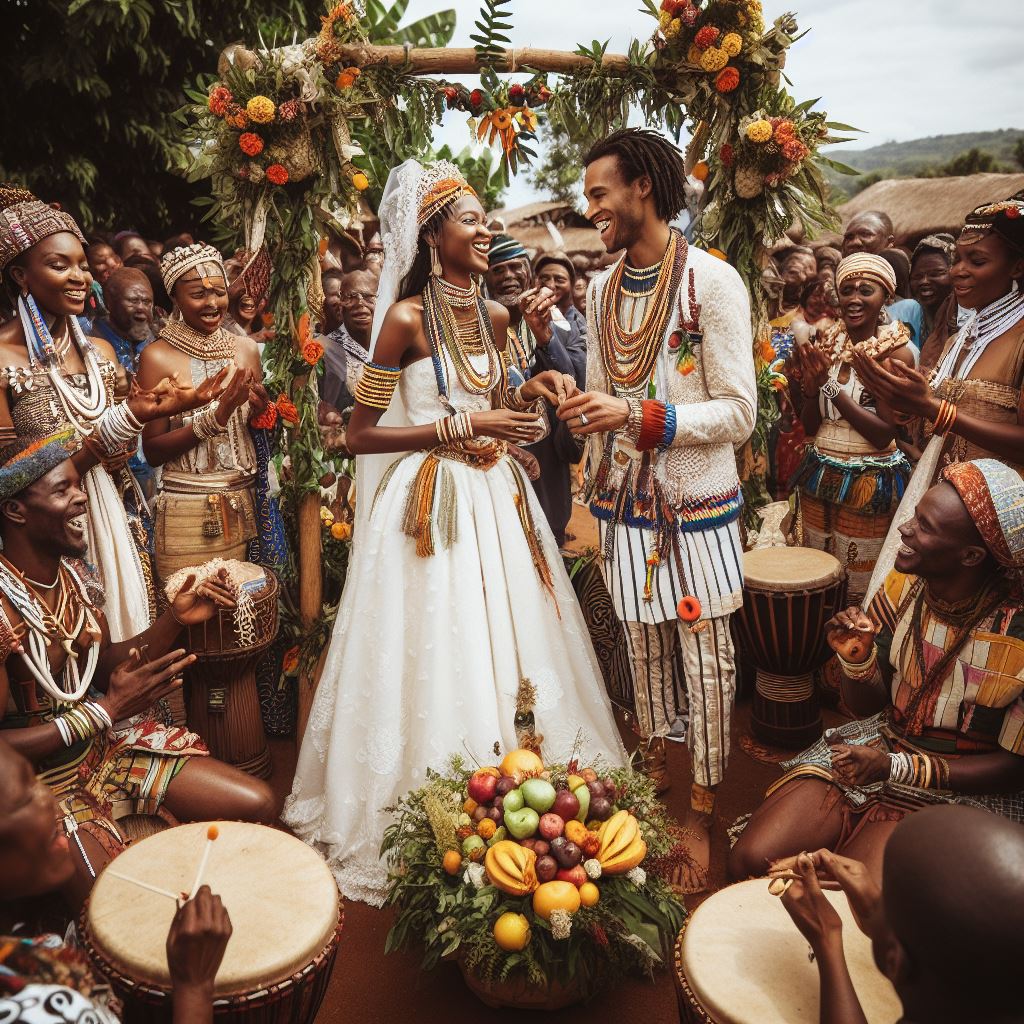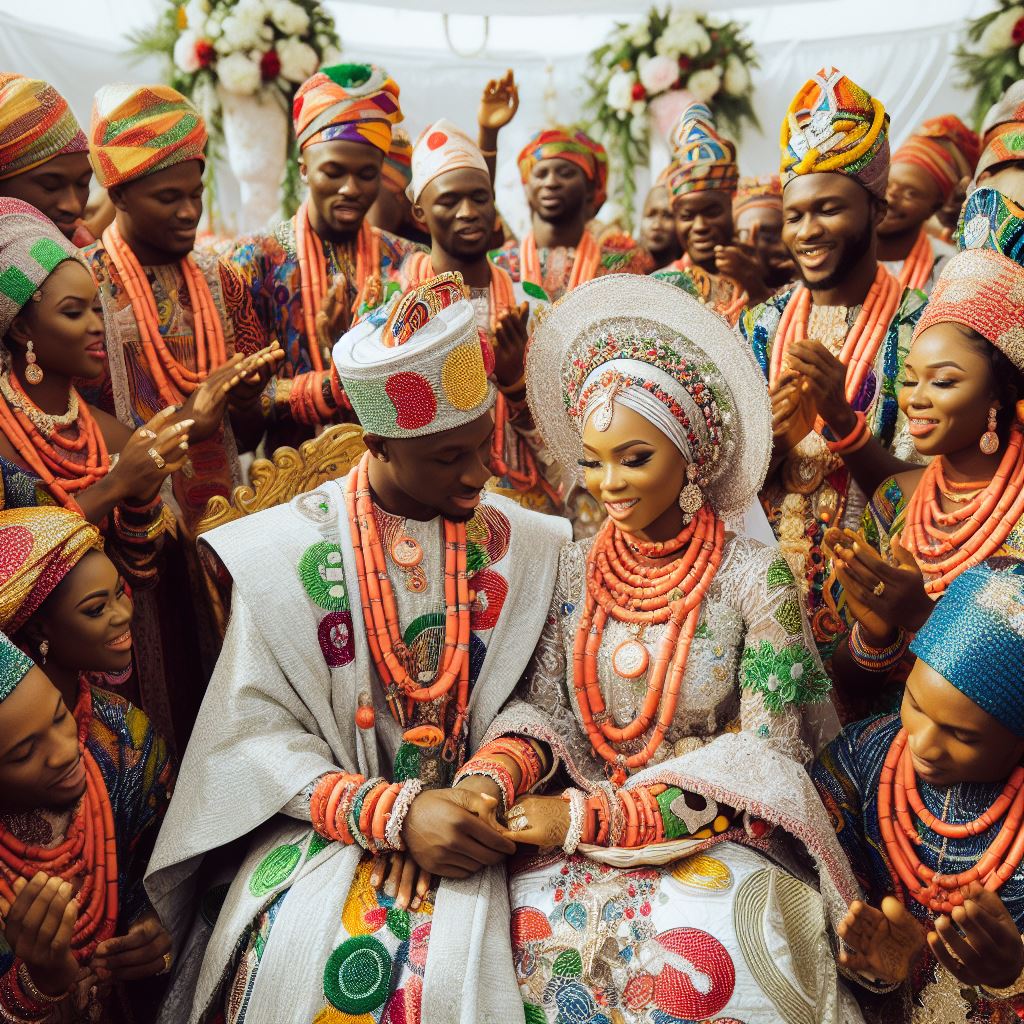Introduction
Marriage holds significant importance in Nigerian culture and society, serving as the foundation of social structure.
This blog post aims to provide a comprehensive understanding of the roots of marriage in Nigeria, exploring its traditional and cultural aspects.
By delving into the historical background and traditional practices, readers can gain insights into the deep-rooted customs and beliefs that shape Nigerian marriages today.
We will examine the various marriage rituals, such as dowry, traditional ceremonies, and the role of families in matchmaking.
Additionally, we will explore the reasons behind the emphasis on marriage in Nigerian society, including the societal expectations placed on individuals to marry and the significance of marital unions for economic stability and social status.
Lastly, we will discuss the evolving nature of marriage in Nigeria, considering the influence of modernization, globalization, and changing societal trends on the institution of marriage.
Through this blog post, readers will develop a comprehensive understanding of the historical, cultural, and societal aspects of marriage in Nigeria, shedding light on the traditions that continue to shape the lives of Nigerians today.
Traditional Marriage Practices in Nigeria
Marriage is an integral part of Nigerian culture, deeply rooted in the customs and traditions of various ethnic groups across the country.
These traditional marriage practices reflect the values, beliefs, and social structures prevalent in Nigerian society.
In this section, we will delve into the diverse customs and rituals that shape traditional Nigerian weddings, exploring the significance and symbolism behind each rite while also highlighting the crucial role of the extended family and community.
Overview of the traditional marriage customs and rituals in different Nigerian ethnic groups
To truly understand the essence of marriage in Nigeria, one must explore the unique customs found in different ethnic groups.
From the Igbo to the Yoruba, each group has its distinct marriage practices that contribute to the rich tapestry of Nigerian heritage.
The Igbo, for instance, engage in the “Igba Nkwu” ceremony, where the groom’s family presents gifts and drinks to the bride’s family as an official introduction.
On the other hand, the Yoruba engage in the “Introduction” ceremony, known as “Mo mi iyawo,” where the groom’s family brings gifts to the bride’s family, symbolizing the intention to marry.
Significance and symbolism behind various marriage rites
These customs and rituals hold deep symbolic meaning within Nigerian culture.
They serve as a way to honor ancestors, establish social status, and strengthen family ties.
For example, the exchange of kola nuts during a traditional Yoruba wedding is not just a gesture of hospitality but also a way to invoke blessings from the gods and showcase the family’s wealth and abundance.
Similarly, the pouring of palm wine during an Igbo wedding signifies fertility and the joining of two families in harmony.
Role of extended family and community in traditional Nigerian marriages
In addition to the couple themselves, traditional Nigerian marriages involve the active participation of the extended family and the community at large.
Marriage is seen as a union between two families rather than just two individuals.
The extended family plays a crucial role in the negotiation of bride price, a practice prevalent in many Nigerian cultures.
The payment of dowry symbolizes the groom’s appreciation and commitment to the bride’s family, reinforcing the communal aspect of marriage.
Community plays a significant role in the celebration of traditional Nigerian weddings
Moreover, the community plays a significant role in the celebration of traditional Nigerian weddings.
The wedding ceremony is often a grand affair, with elaborate festivities, music, and dance.
It is an occasion for the entire community to come together, celebrate, and offer their blessings to the newlyweds.
The presence of the community not only provides support and guidance to the couple but also ensures the continuity of cultural traditions and values.
Basically, traditional marriage practices in Nigeria reflect the diverse cultural heritage of the country.
Each ethnic group has its unique customs and rituals that contribute to the overall fabric of Nigerian weddings.
These practices hold significant meaning and symbolism, representing the values and beliefs of the society.
Furthermore, the involvement of the extended family and community highlights the collective nature of marriage, emphasizing the importance of strong familial and communal bonds.
Read: God’s Plan for Marriage: Rooted in Biblical Scriptures
Traditional Marital Roles and Responsibilities
In Nigerian marriages, gender roles have been traditionally defined and upheld to maintain the harmony and functioning of the union.
Traditional gender roles in Nigerian marriages
- Men are expected to be the providers and protectors of the family.
- Women are traditionally responsible for managing the household and taking care of the children.
- Men hold decision-making authority, while women are often expected to be submissive to their husbands.
Expectations and duties of husbands and wives in different Nigerian cultures
However, it is essential to note that gender roles can vary across different Nigerian cultures.
- In some cultures, men are expected to be strong leaders and breadwinners, while women support their husbands and fulfill domestic responsibilities.
- In other cultures, women have more prominent roles in earning income and actively participate in decision-making alongside their husbands.
- Some cultures emphasize the importance of marriage as an equal partnership, where both spouses share responsibilities equally.
The evolving nature of gender roles in modern Nigerian marriages
With the influence of modernization, gender roles in Nigerian marriages have witnessed significant changes.
- More Nigerian couples are adopting a more egalitarian approach, where responsibilities and decision-making are shared.
- Increasing education and empowerment of women have challenged traditional gender roles, allowing them to have careers and pursue personal aspirations.
- Men are becoming more involved in household chores and childcare, defying the traditional perception of masculinity.
These changes reflect the evolving Nigerian society’s mindset towards gender equality and the recognition of women’s rights.
While traditional gender roles have long been a part of Nigerian marriages, the dynamics are gradually shifting with the changing times.
It is crucial to embrace a more inclusive and equal approach in marital relationships, where both spouses contribute equally and have the freedom to fulfill their individual potential.
The understanding and acceptance of evolving gender roles are fundamental for a thriving and harmonious marriage in modern Nigerian society.
Read: The Role of Husbands & Wives: Exploring Ephesians 5
Marriage as a Socioeconomic Institution
In Nigeria, marriage is not only a union between two individuals but also a socio-economic institution that holds significant importance in the society.
This section delves into the economic aspect of marriage in Nigeria, including the traditions of dowry and bride-price in different Nigerian communities, and analyzes their implications on gender dynamics and marital relationships.
Exploration of the economic aspect of marriage in Nigeria
Marriage in Nigeria is not just a personal affair but also a financial one.
It involves the exchange of wealth, goods, and services between the families of the bride and groom.
Understanding the economic dimension of marriage gives insight into the complexities of this social institution.
Within the Nigerian context, marriage serves as an avenue for wealth redistribution and social mobility.
It plays a significant role in the accumulation and transfer of property, resources, and social status.
The economic aspect of marriage is deeply intertwined with societal expectations, traditions, and cultural beliefs.
Dowry and bride-price traditions in different Nigerian communities
The dowry and bride-price traditions are prevalent in various Nigerian communities, albeit with some variations.
The dowry, known as “lobolo” in some communities, is a payment made by the groom’s family to the bride’s family.
It is seen as compensation for the bride’s family for the loss of their daughter.
On the other hand, the bride-price is a payment made by the groom’s family to the bride’s family as a condition for marriage.
It is intended to demonstrate the groom’s ability to provide for his wife and symbolizes his commitment to the union.
These traditions have deep historical and cultural roots in Nigeria.
In some communities, the dowry or bride-price is paid in cash, livestock, or other valuable goods.
The value of the dowry or bride-price can vary depending on factors such as the social status of the families involved, education level, and perceived market value of the bride.
Such traditions have both economic and social implications for all parties involved.
Implications of these practices on gender dynamics and marital relationships
The dowry and bride-price traditions have significant implications for gender dynamics and marital relationships in Nigeria.
These practices often reinforce traditional gender roles and expectations, placing a monetary value on women and their roles within the family.
For instance, the payment of a dowry or bride-price can create a sense of ownership or indebtedness towards women, further perpetuating the perception of women as commodities.
It can also lead to unequal power dynamics within marriages, as the payment may be seen as buying the bride’s obedience and submission.
Moreover, these practices can increase the vulnerability of women in marital relationships.
If a woman’s family receives a substantial dowry or bride-price, there may be higher expectations for her to conform to societal norms and fulfill certain responsibilities, regardless of her own aspirations or desires.
However, it is important to note that the dynamics of gender and marriage are not universally the same across Nigeria.
While some communities strictly adhere to these traditions, others have modified or abolished them altogether.
The economic aspect of marriage continues to evolve and adapt to changing societal values and norms.
Generally, marriage in Nigeria is not solely a union of two individuals but also a socio-economic institution.
The economic aspect of marriage is evident through the traditions of dowry and bride-price, which have significant implications for gender dynamics and marital relationships.
Understanding the complexities of these practices is crucial for a comprehensive examination of marriage in Nigeria.
Read: Navigating Marital Challenges: Guidance from the Bible

Marriage in Modern Nigeria
In this section, we will examine the changes in the institution of marriage in Nigeria due to modernization and globalization.
We will also discuss the influence of western ideals and values on Nigerian marriages.
Changes in the Institution of Marriage
- Traditional marriage practices have evolved in Nigeria as a result of modernization and globalization.
- Arranged marriages, which were common in the past, are now less prevalent in urban areas.
- Young Nigerians are increasingly choosing their own partners and participating in love-based marriages.
- Interethnic and interracial marriages have become more accepted in Nigerian society.
Influence of Western Ideals and Values
- The introduction of Western ideals and values has had a significant impact on Nigerian marriages.
- The concept of romantic love, popularized by Western media, has influenced the way Nigerians view marriage.
- Individualism and gender equality, promoted by Western societies, have shaped the dynamics of Nigerian marriages.
- Divorce rates have also risen, as the stigma associated with divorce has decreased under Western influences.
Impact of Education, Urbanization, and Socioeconomic Factors
- Education has empowered Nigerian women, leading to delayed marriages and increased emphasis on career.
- Urbanization has provided more opportunities for education and employment, altering traditional marriage practices.
- Nigerians from different socioeconomic backgrounds have different perspectives on marriage and family.
- People from lower socioeconomic classes often prioritize economic stability over romantic love in marriage.
Essentially, marriage in modern Nigeria has undergone significant changes influenced by factors such as modernization, globalization, and the introduction of Western ideals and values.
While traditional practices still exist, young Nigerians are increasingly embracing love-based marriages and interethnic unions.
Education, urbanization, and socioeconomic factors also play a role in shaping the institution of marriage in Nigeria.
Read: A Lifelong Bond: Inspirational Bible Verses on Marriage
Challenges and Issues in Nigerian Marriages
Common issues faced by married couples in Nigeria
Married couples in Nigeria face a multitude of challenges and issues that can strain their relationships.
These issues range from infidelity, domestic violence, financial pressures, to cultural clashes.
Infidelity, domestic violence, financial pressures, and cultural clashes
Infidelity is a common issue in Nigerian marriages, causing trust issues and emotional pain.
Domestic violence also poses a significant challenge, affecting the physical and psychological well-being of individuals.
Financial pressures often arise due to unemployment, poverty, or unequal financial contributions, leading to conflicts and resentment between couples.
Cultural clashes between different ethnic groups or religious beliefs can also create tension within marriages.
Efforts made to address these challenges and promote healthy marital relationships
Despite these challenges, various efforts have been made to address them and promote healthy marital relationships.
Counseling services, both religious and secular, are available to support couples in navigating these issues.
Government agencies and NGOs are working to raise awareness about domestic violence and provide resources for victims.
Educational programs on finance management are also being implemented to help couples alleviate financial pressures.
Furthermore, there is an ongoing shift towards encouraging open communication, trust-building, and mutual respect in marriages.
Traditional values of respect for elders and the importance of family support are being emphasized to strengthen marital relationships.
Conclusion
This blog post explored the roots of marriage in Nigeria and highlighted some key points.
It is important to understand these roots to appreciate the significance of marriage in Nigerian culture.
Firstly, we discussed the traditional practices and rituals that surround Nigerian marriages.
These traditions have been passed down through generations and hold great importance in Nigerian society.
We also examined the social and economic aspects of marriage in Nigeria.
It was evident that marriage serves not only as a union between two individuals but also as a means of strengthening social ties and building wealth.
Furthermore, we emphasized the need to embrace the diversity and richness of Nigerian marital traditions.
Each ethnic group in Nigeria has its unique customs and beliefs about marriage, and this diversity adds to the cultural tapestry of the country.
In light of this, it is essential for readers to appreciate and respect the various marriage traditions in Nigeria.
By doing so, we can foster a deeper understanding and celebration of Nigerian culture.
In a nutshell, understanding the roots of marriage in Nigeria is of utmost importance.
It allows us to comprehend the significance of marriage in society, respect diverse traditions, and appreciate the cultural richness that Nigerian marriages bring.




